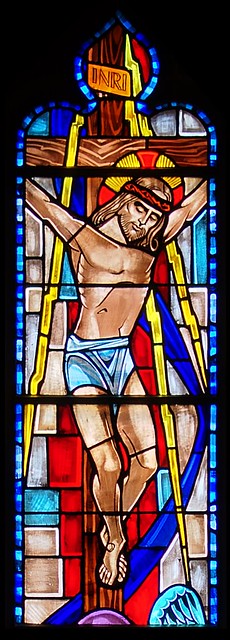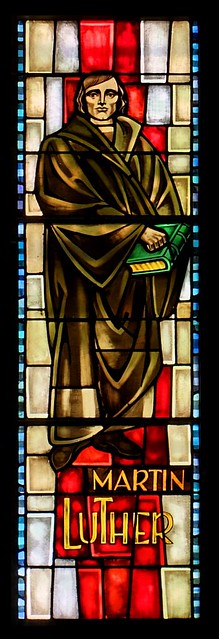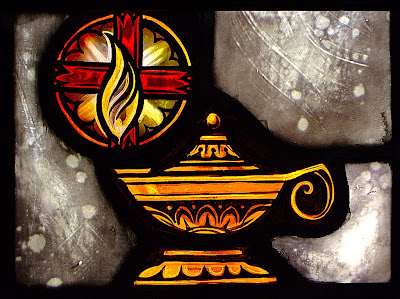by
Pastor Paul Wolff
 |
| Jesus taught the truth at Nazareth |
The
post-modern cynics would say this is just another example that shows
that there is no such thing as truth, or at least that all truth is
subjective and relative. However, if that were true
it would contradict the very idea that the cynics are trying to sell
to gullible people who think they are a lot smarter than they really
are. There is in reality such things as truth and lies, and the exact
opposite of the truth is still false, and vice-versa.
However,
there is a simple explanation for why the exact opposite of a heresy
is also false, and it explains why so many Christian teachers
throughout history who have wanted to oppose false teachings have
also fallen into heresy. The reason is that most heresies are not
completely false, but are merely half-truths or contain
some sliver of truth. This happens because false teachers try to
rationalize teachings that they don’t understand or refuse to
believe, and they try to come up with something that sounds
believable (even though it contradicts the teachings of Holy
Scripture). If false teachers want to convince others of the
truthfulness of their heresy they can’t push something completely
false or no one would fall for it. Then, if a Christian tries to
counter the half-truth with its opposite, then that is also false
because it is still half wrong – it is just the opposite half. A
half-truth is still a lie, so its opposite is also a lie because it
is still only half-true.
 |
| The devil tried to lure Jesus into heresy |
Now,
the complete opposite of the true doctrine that Jesus is fully God
and Man in one person is to say that Jesus is neither God, nor Man,
and never existed at all. This is not likely a teaching that you will
find among anyone who calls themselves a “Christian” because no
Christian (and few others) will be persuaded by something so
completely false. You may find some militant atheists who would try
to pass this along, but even among them this is more wishful thinking
than anything else. Heretics use half-truths because they make the
lie easier to swallow, first for themselves, then for anyone else who
may wish to follow them.
But with this example there are many variations among those who either want to resolve the paradox or want to lead Christians astray through false logic. Like many heresies, these are quite rational, which only adds to both their appeal and their danger. This is especially true in this example because this doctrine is a paradox. In many ways God is the opposite of man, yet Jesus is somehow both fully God and fully man. Paradoxes seem irrational so any attempt to rationalize the paradox will end up with only partial truth which will be false in some way.
 |
| “Behold the Man” (John 19:5) “Jesus Christ ... is God over all” (Romans 9:5) |
An
opposite teaching from docetism is Arianism, which says that Jesus is
a man or some kind of being less than God, but is not God. The false
part of this teaching is that it denies that Jesus is fully God.
Another
possible variation of this could maintain that Jesus is part man
and/or
part god. This is found in the Apollinarian
heresy and perhaps
others, though in
practice both Docetists
and Arians
hold to this in a greater or
lesser degree.
The
doctrine of Christology is just one example of how blindly reacting
to heretical half-truths can lead to other false teachings. There are
many more such examples in history. We can see a stark example of
this in the Lutheran Reformation. The brilliance of Martin Luther is
that he steadfastly worked toward a conservative reformation. He only
wanted to get rid of the false teaching in the Church, but he
worked hard to conserve those true teachings which either were
Biblical or otherwise promoted good Christian teaching. Not all of
Rome’s teachings were wrong. Even today the Roman Catholic church
still has many correct teachings mixed in with the false teachings.
Luther’s reformation was the harder way to go, not only because it
took much more work to sift out the wheat from the chaff, but also
because it put Luther at odds with the Roman Catholics, and with the
more radical reformers. However, it was the right way to go.
 |
| Martin Luther conserved the truth while removing the false teachings |
This
is why the descendants of the radical reformers have come full circle
to teach the same Semi-Pelagian errors of the Roman Catholic church.
The radical reformers simply said, “We are going to do the opposite
of what Rome does. Since Rome is wrong, we will be right.” But they
only exchanged one lie for another. As their descendants recognized
the wrongness of their teachings, they reacted similarly by holding
to the exact opposite teaching, then they eventually came full circle
to embrace the same false doctrines which their ancestors first
reacted against.
An
example of this is Rick Warren’s comments at the Pew Forum on
Religion, Life, and Politics in 2005 where he said,
“You know, 500 years ago, the first Reformation with Luther and then Calvin, was about beliefs. I think a new reformation is going to be about behavior. The first Reformation was about creeds; I think this one will be about deeds. I think the first one was about what the church believes; I think this one will be about what the church does.”
To
my Lutheran ears this seems to take Warren back to the days of Pope
Leo X, though it may be worse because many of Martin Luther’s Roman
opponents would not have separated faith and works so thoroughly. The
16th century Roman church was Semi-Pelagian, and not
completely Pelagian. Warren seems to be exalting works over faith.
It
is good to want to correct false teaching. However we must be careful
not to react too quickly. It often takes discernment and study of the
Holy Scriptures to learn the whole truth. Saint Paul gives a valuable
instruction when he wrote, “Brothers, if
anyone is caught in any transgression, you who are spiritual should
restore him in a spirit of gentleness. Keep watch on yourself, lest
you too be tempted.” (Galatians 6:1) This
clearly
warns against falling into the same temptation as the transgressor,
but it could also easily warn against falling into the opposite
error, or falling
into self-righteousness. Either way, we ought to take care when dealing
with error in the church.
 |
| The word of God is a lamp to my feet and a light for my path. Psalm 119:105 |

